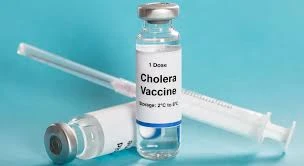The Cholera outbreak in Lagos has claimed over 30 lives according to a report by the Lagos State Government; See Dr Aproko's Reaction.

Nigeria has faced recurrent cholera outbreaks, often exacerbated by inadequate water and sanitation infrastructure, high population density, and conflict in certain regions.
The Nigeria Centre for Disease Control and Prevention (NCDC) has reported an outbreak in Lagos State with 1,141 suspected and 65 confirmed cases of cholera, along with 30 deaths, from January to June 11, 2024.
Lagos, with a population exceeding 10 million, is characterized by high-density living conditions. Informal settlements often lack basic sanitation and clean water, creating ideal conditions for cholera transmission.
Factors Contributing to the Spread of Cholera in Lagos
The spread of cholera in Lagos can be attributed to the following key factors:
Poor Sanitation and Hygiene
Many areas in Lagos have limited access to clean drinking water. People often rely on contaminated water sources, increasing the risk of cholera. Poor waste disposal practices lead to the contamination of water sources with human feces, which contains the Vibrio cholerae bacteria.
Overcrowding
Lagos is one of the most populous cities in Africa, with many people living in densely populated slums. Overcrowding makes it difficult to maintain proper sanitation and hygiene. Rapid and unplanned urbanization has led to inadequate infrastructure, including insufficient sewage and water treatment facilities.
Climate and Seasonal Factors
Lagos experiences heavy rainfall and flooding, which can contaminate water supplies with sewage and other pollutants. The warm climate of Lagos provides an ideal environment for the Vibrio cholerae bacteria to thrive.
Public Health Infrastructure
Many residents have limited access to healthcare facilities and services, delaying diagnosis and treatment of cholera. Poor disease monitoring and reporting systems hinder timely responses to outbreaks.
How To Prevent Yourself Against Cholera Outbreak?
Preventing cholera involves a combination of personal hygiene practices. Aproko Doctor (Dr. Chinonso Egemba), known for his humorous approach to addressing critical health issues, shares insights on how to prevent oneself from the cholera outbreak.
He jokingly pounded on individuals who eat from street canteens, which he calls Iya Basira. He insinuated that personal hygiene must be upheld at a very high standard to prevent oneself from this outbreak.
Here are key measures to protect yourself during a cholera outbreak:
- Use Treated Water: Drink only water that has been boiled, chemically treated (with chlorine or iodine), or is from a bottled, sealed source.
- Avoid Contaminated Water: Do not use untreated water for drinking, cooking, or brushing your teeth.
- Hand Washing: Wash your hands thoroughly with soap and clean water, especially after using the toilet, before preparing food, and before eating.
- Safe Sanitation: Use latrines or toilets for defecation, and ensure they are properly maintained to prevent environmental contamination.
- Eat Safe Food: Only eat food that is cooked thoroughly and served hot. Avoid raw or undercooked seafood and other foods.
- Wash Fruits and Vegetables: Peel fruits and vegetables yourself and wash them with safe water if you are going to eat them raw.
- Avoid Street Food: Be cautious with street food, which might be prepared or stored in unhygienic conditions.
- Vaccination: Consider getting vaccinated against cholera if you are in a high-risk area. Oral cholera vaccines can provide protection and are an important preventive measure.

